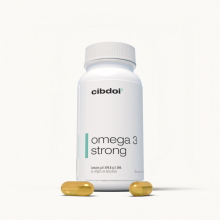Is the Omega-3 in Avocados Better than Salmon?
Published:
Avocados and salmon are both nutritious foods that provide omega-3 fatty acids. But when it comes to getting these heart-healthy fats, is the omega-3 content of avocados actually better than salmon?
Contents:
This comprehensive article reviews the latest evidence comparing the amounts and types of omega-3 fats in avocados and salmon. You’ll learn:
- The major types of omega-3s and their health benefits
- Exact amounts of omega-3s in avocados versus salmon
- Differences in ALA, EPA and DHA content
- Benefits of salmon’s EPA and DHA versus avocado’s ALA
- How omega-3s from the two foods get utilized by the body
- Diet tips to get adequate amounts of all omega-3s
By the end, you’ll understand the key differences between the omega-3 profiles of avocados and salmon to determine which is the optimal source.

Overview of Main Omega-3 Fatty Acids
There are three primary types of omega-3 fats that provide different health benefits:
- ALA - Found mainly in plants like flaxseeds. Has modest anti-inflammatory effects.
- EPA - From seafood and fish oil. Reduces inflammation and heart disease risk.
- DHA - Most abundant in fatty fish. Crucial for brain and eye health.
Our bodies can convert some ALA to EPA and DHA, but only in very small amounts. That’s why experts recommend getting pre-formed EPA and DHA from seafood.
But how do avocados and salmon stack up as sources of the different omega-3s?
Total Omega-3 Content: Avocados Versus Salmon
Here is how 100 grams (about 3.5 ounces) of raw avocados and salmon compare in their total omega-3 content:
- Avocados: 132 mg omega-3s
- Salmon: 2,260 mg omega-3s
Salmon contains over 17 times more total omega-3s than avocados in the same serving size.
But beyond just amounts, the types of omega-3s differ significantly between the two foods.
ALA Omega-3 Content
For ALA, the plant-based omega-3:
- Avocados provide 132 mg ALA per 100 grams.
- Salmon has 0 mg ALA. Fish and seafood contain no ALA.
So avocados can be a good dietary source of ALA, while salmon has none. But ALA makes up only a fraction of salmon’s total omega-3s...
EPA and DHA Omega-3 Content
Where salmon really stands out is its high levels of the marine-based EPA and DHA omega-3s:
- Salmon has 1,240 mg EPA + 980 mg DHA per 100 grams.
- Avocados contain essentially no EPA or DHA (only trace amounts).
Because ALA from plants gets minimally converted to EPA and DHA in the body, salmon’s large pre-formed amounts of these omega-3s are highly beneficial.
Benefits of Avocado’s ALA Versus Salmon’s EPA/DHA
Here is how the omega-3s from each food translate into health benefits:
- Avocado’s ALA has modest cardiovascular benefits. But ALA alone cannot fully meet the body’s requirements for EPA and DHA.
- Salmon’s EPA and DHA have strong anti-inflammatory effects that reduce chronic disease risk and support the brain, eyes and other physiological functions.
- Obtaining pre-formed EPA and DHA from seafood like salmon is preferable to relying solely on conversion from ALA in the body.
So while avocados provide beneficial plant-based omega-3s, salmon’s marine-derived EPA and DHA deliver the most wide-ranging health advantages.
Maximizing Omega-3 Benefits From Both Foods
To get optimal omega-3 benefits, nutrition experts recommend:
- Regularly eating oily fish like salmon a few times a week.
- Including good plant sources of ALA like avocados, walnuts, flax and chia seeds in your diet.
- Limiting omega-6 from processed foods, fried items and vegetable oils.
- If needed, taking an algae oil supplement to increase daily EPA/DHA intake.
Enjoying both avocados and salmon as part of a balanced diet and lifestyle can help provide the full spectrum of omega-3 fatty acids.
Conclusion
In summary, while avocados contain beneficial omega-3 ALA, salmon is far richer in EPA and DHA omega-3s which deliver the broadest benefits for health.
For optimal omega-3 status, regular consumption of fatty fish like salmon alongside plant sources like avocados, flaxseeds and walnuts provides both the marine and plant-derived forms of this essential fatty acid.
Aiming to get a variety of omega-3s from both seafood and plant foods can help reduce inflammation and promote good overall wellness.










